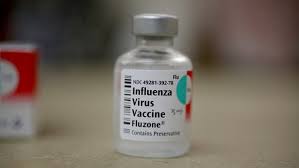 With the announcement that flu season has brought a virus that does not match the vaccine there have been concerns over vaccination and the flu.
With the announcement that flu season has brought a virus that does not match the vaccine there have been concerns over vaccination and the flu.
Or, if you are like me- and had the flu vaccine but then came down with the flu – well, you feel cheated. But don’t. Remember, flu season is about more than one flu virus- but the one going around is nasty. But yes- to think I got that shot and now am just getting over the nasty flu bug – arg.
Why didn’t the vaccine match the flu virus that is going around?
Every year the flu vaccine is made based on flu outbreaks in other countries. There are 111 counties that are checked for influenza. Those countries send the samples of the virus to the Centers for Disease Control, as well as other international laboratories. Based on what flu virus is circulating determines the vaccine being made.
This year the flu virus H3N2 mutated. The flu changed its protein structure, so the vaccine against is LESS effective. As a result, the flu vaccine is about 40% as effective as it would be expected to be.
Why does this happen?
It takes four to months to ramp-up the production of vaccines, which is enough time for the flu to mutate. It doesn’t always mutate, but this year they noticed the change in September and it was too late to alter the process. By the time they would have come out with a new vaccine flu season would be essentially over.
Flu season begins with the first outbreak of the flu- and once it has spread it lasts for about six weeks. The current outbreak, with the H3N2 virus, will be over by January.
Should we still get a vaccine?
Yes. Flu season isn’t about one strain of flu going around- there are typically several strains. The CDC recommended immediate vaccination. Already five children have died this year.
While the current virus, H3N2, is going around- but the flu season typically has several more types of flu bugs.
What does the vaccine work against?
This year Three strains of flu – although some against four different strains of flu.
Influenza H3 – older subtypes. This is the type that mutated and changed. This is the most common type of flu seen out in public – so far about 91% of all samples. It is this that the current vaccine does not protect against. If any older H3 influenza comes around the current vaccine will protect against it.
Influenza B
About 10 percent of the flu stains are influenza B – and the current vaccine is protective against this strain.
Swine Flu or H1 Type
H1 or swine flu type, have been in every vaccine since the outbreak of 2009 that was responsible for over 30,000 deaths in the US. The increased vaccination against this may be responsible for the decrease in this flu world wide. This type of flu is a particularly nasty variety that has been responsible for the majority of flu deaths world-wide since we have been keeping records.
What about anti-viral medication, like Tamiflu?
While Tamiflu (oseltamivir) and Relenza (zanamivir) are not effective in preventing person-to-person spread of the flu, in children, and high-risk individuals, they reduce symptoms by an average of half a day.
At risk individuals who would benefit from Tamiflu include children under the age of two, adults over 65, pregnant women, and people who have asthma, cardiovascular disease, and diabetes. People in nursing homes would also benefit from antiviral medications should they come in contact with the flu.
When should you get the anti-viral drugs?
Anti-viral drugs work best if taken within two days of infection. Thus it is important to get to your doctor quickly to get the prescription.
What other flu viruses are out there?
Currently the flu strained called H3N2 is the dominant strain – and it has caused an increased rate of hospitalization this year. But in addition to that there are three other strains of flu that are circulating in the population, and it is against those that the current vaccine is still effective.
What about natural foods that boost the immune system?
There are no herbs, vegetables, smoothies, or drinks that have ever been proven to “boost” the immune system to prevent influenza.
My sister said she has never had the flu and always drinks green smoothies?
Vaccines work by priming the immune system that when it sees a certain protein it can quickly build the white blood cells to recognize that protein and remove it from the body. There is no set of “natural” remedies that do this. Drinking more teas, or eating more vegetables does not provide the blueprint of the foreign proteins that can cause disease. Nor do any of those “organic” or “natural” cures been shown to work. In spite of the anti-vaccination attempts to do this without vaccination the rise of certain viruses and bacteria have increased because fewer have been vaccinated . Besides- isn’t your sister a pain in the neck- and she has to drink those green smoothies- save your green for the lawn and your wallet, let her drink the grass clippings, it won’t help.
What will vaccine prevent this year?
The older H3 strain, influenza B, and some of the H1 strains.
If we get the flu is there anything we should do?
Avoid contact with other people. Stay home if you are symptomatic. Symptomatic relief works best, humidifier at night, some like drinking tea. Don’t come to my house. Oregano oil works well with lamb.
